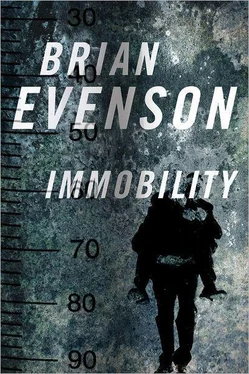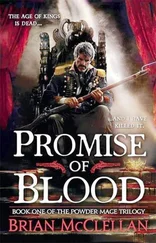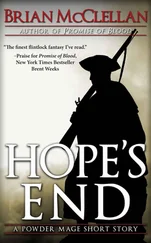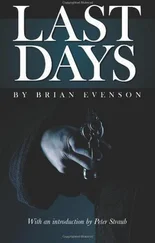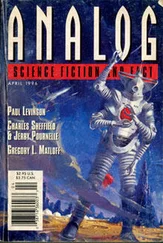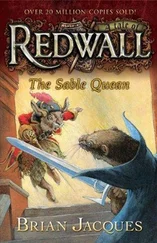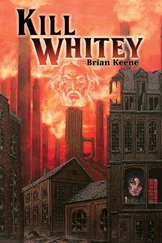“That wasn’t so bad,” he said. “Last time they came, it was worse.”
“What happened?” asked Horkai.
“There were a few more of them,” he said. “And a few less of us. Had to kill a few of them and deliver the heads back to their friends.”
“And then they just left you alone?”
He smiled wryly. “If you deliver enough heads, they tend to do that. At least for a while.”
Horkai sat down on the couch. They stayed there like that for some time, not talking. Then, finally, Horkai spoke.
“They’ll be back, you know,” said Horkai.
“Of course they’ll be back,” said Rykte. “We haven’t killed any of them yet.”
“Should we be preparing for them?” Horkai gestured to the pile of guns on the table.
“We’re prepared,” he said.
“But—”
“They’re going to come and we know they’re coming. They’re planning to try to kill us. We’ve got weapons, they’ve got weapons. That’s all we can do,” he said. He gave Horkai an appraising look. “Unless you want to attack them instead of waiting for them to attack us.”
They sat in silence. “This is my fault,” Horkai finally said.
“I don’t see it that way,” said Rykte.
“I told them I’d do something for them. If I go give them what they want, they’ll leave us alone.”
“Do you really think so?”
Horkai hesitated, then nodded.
“Then you have a better opinion of them than I do,” said Rykte. “These are the people who took away the use of your legs. These are the people who lied to you to get you to do something for them in the first place. Do you really think if you give it to them, they’ll suddenly change? There is always one more thing. There always will be. You’re foolish to go to them.”
“If I don’t go, they’ll just keep coming back. Over and over and over.”
“Don’t be foolish. They’ll do that anyway.”
“Maybe,” said Horkai. “But not nearly so soon.”
Rykte sighed. “You’re wrong about all this. It’s a stupid idea. But it’s your choice.” He tucked his pistol back under his arm. “Maybe I’ll come with you,” he said.
“No, you have no part in this,” said Horkai. “I was the one who agreed, I’m the one who should go.”
Rykte hesitated, then nodded. “If you’re sure,” he said.
“I’m sure,” said Horkai, although inside he wasn’t.
LATER, MUCH LATER, just before the end, he had a few minutes to turn all these decisions over in his head, to try to reach an understanding of where and how many times he had gone wrong, to try to figure it out before it was too late, to try to keep a sense of his faults, his errors firmly in his mind at the critical moment so that this time he wouldn’t forget them.
But the problem was that, in retrospect, almost every decision he had made seemed like a mistake.
Which one did he regret most? Was it when he first decided to accept the so-called mission, even though he knew something was wrong, that they weren’t telling him everything, possibly weren’t even telling him the truth? Was it when, inside a mountain made of granite, he had decided to try to kill a man who had been nothing but friendly to him? Or was it when—even though he knew there was no reason for it and every reason against it, even though he knew it was counter not only to his best judgment but to any judgment of any kind, even though he had been warned—he decided to go back and give them what they wanted?
* * *
THE FIRST BIT WAS EASY. Rykte switched off the storage unit, shut down the gas generators one by one. A pair of tongs and a small Styrofoam cooler, and the cylinder was out and ready to travel. Horkai took a pistol and a knife, and then Rykte insisted he take a rifle as well.
“You sure you don’t want to reconsider?” asked Rykte as they stood there in front of the house. But Horkai shook his head. Rykte nodded once. “Head for the mountains,” he said. “You’ll probably see the stadium first, make for that. After that, you should be able to find your way.”
They shook hands and then Rykte turned, went back inside.
* * *
HE STARTED WALKING toward the mountain, pistol in his pocket, knife in his boot, rifle slung over his back, carefully carrying the cooler in his arms. Is Rykte right? he wondered as he walked. Is it better for humanity to die out?
He walked until he came to the end of a cul-de-sac, then simply walked past the house at the end of it, kicked a hole in an already-broken fence, and continued on through another former backyard, little more than dust now, to move around another house and come out in another circle, another cul-de-sac. He walked across it and through the remains of a house, using the smear of the sun and the mountains to guide him, to keep him heading east. Two more backyards, a shallow culvert between them, and he was on a larger street, this one running north-south. He hesitated a moment, considering cutting through backyards, but in the end followed the street north half a block and then took it east. Ruined cars, two of them next to each other, nearly scoured of paint but with enough left to tell that one had been red, the other green. Like Christmas, he thought absurdly, and was again amazed by what his mind remembered, and what it could not.
It was a residential development, all houses, no apartments. The houses were single-story, brick ranch homes almost identical in appearance, scattered through with a smattering of bungalows and split-level ranches, the latter largely collapsed. The ranch houses, too, were often partly down or missing their roofs. He followed the road up a gentle slope until it curved north to end in a cul-de-sac. He pushed past a house and went east, climbing a steep slope that seemed to give way beneath him almost as fast as he progressed until, panting, he arrived at the top of a crumbling parking lot facing a derelict church.
The front of the church had collapsed, the roof sloping down to touch the ground. He left the cooler on the pavement and climbed this roof, the structure creaking underneath him, until he had a view down to the lake and up toward the mountain. He carefully scanned the foothills until, finally, he saw the stadium, realized he was much farther south than he’d thought. He traced a tentative path through the streets with his eyes, then climbed down and started off again.
* * *
THE SUN, HE COULD SEE, was starting its descent, though it was still a few hours from setting. He passed through the remains of backyards, slowly traveling northeast now, stopping, when he had opportunity, to climb a brick wall or a roof and look again and reorient himself.
He came to a river, its water still red, this one with a different sort of plant life running along the bottom of it, long and filamental and recoiling at the touch, almost more animal than plant. One or two water bugs, too, though more like underwater roaches than like the water striders he remembered watching when he was a child. He watched the tendril of a plant suddenly snap itself around one, suck it under. Yes, he thought, life was coming back, but it was coming back as something else, utterly unlike what it had been before. Another few decades, and perhaps it would no longer be a world humans could survive in. Chary of the plants in the water, he walked along the river until he found a place narrow enough to leap across.
From there, he told himself, he would aim roughly for the place on the mountain where the letter had been; that would lead him directly across the university.
It would have been simple. He would have done it, too, except after just a few blocks he caught a glimpse to the south of a large building, the sun glinting off it. It was, he could see even from here, an old town capitol, made of stone, pillars running along the front at regular intervals. Topping it was a metal dome. It reminded him of his dreams.
Читать дальше
